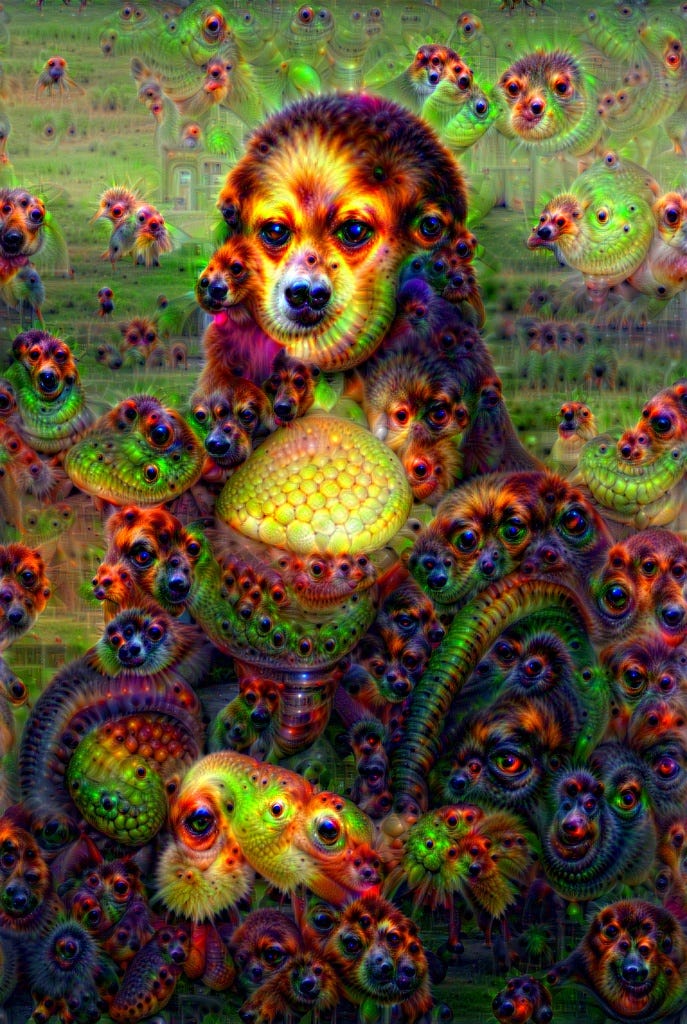Christ vs. Kleist
Voice Recognition, AI, and Conformity
This entry isn’t about Christ or Kleist. It’s about voice recognition, AI, and how algorithms and AI make popularity into a prescription. Last week I was dictating a message to a friend and wanted to discuss the German writer Heinrich von Kleist, but Google’s voice recognition insisted I was discussing Christ (or “Heinrich on Christ”).
One of the major themes in both of my books Meganets and Bitwise is the pressure toward homogenization and conformity through the algorithmic assimilation and enforcement of dominant trends. By the computational forces of statistical collation (in machine learning in particular and algorithms more generally), sheer quantity and volume increasingly shape our own forms of expression. Past performance becomes the predictor of future results.
The tension between the popular and the outlier is nothing new—we’re always struggling to make ourselves understood against a barrage of competing interpretations—but the ubiquity of computational sorting and manipulation is shifting the balance quickly and drastically.
If our words and thoughts and speeches and writings are all going through a layer of algorithmic and AI-driven computational processing before they're delivered to our audience, there's an opportunity and in fact, a requirement for a certain amount of homogenization. If I am talking about Heinrich von Kleist and Google or Siri or Alexa judges that “Heinrich von Kleist” is “Jesus Christ” and that in talking about Kleist, I am actually speaking of the Christian savior, then Kleist loses a bit of ground to Christ. Just a bit, but it adds up. Without an opportunity to correct the mistake, it feeds into larger statistical analyses and Christ wins more and more battles, boosting his strength.
When I say the word “inchoate,” and Google decides I’ve said “in coat” or “in Kuwait,” or even “in court” or “in-shout,” then that word diminishes in the depths of AIs. It won’t make itself heard or felt in manufactured texts by GPT3, unless there is some identifiable niche in which that word happens to dominate. Overall, we’ll see a homogenization towards a shorter and more manageable form of discourse, pruned by popularity.
You can take what’s happening here in voice recognition and extend it toward many, many other phenomena. Speech and discourse are exceptionally ambiguous, rich, nuanced, and composed of many, many subforms across cultures and contexts, so it makes for a great example. But you can imagine this happening with images, with recommendations, with actions as portrayed in video, you name it. When you look at the surreal images created by Deep Dream and other AI content generators, you are seeing a statistically-driven collision of popular content and popular interpretations of that content. You're getting this content smashed together in bizarre ways and that's what makes it so fascinating, but ultimately you are looking at something that's a popularity contest, The Most Wanted Song writ very large.
This isn't exactly “algorithmic bias” in the sense it’s talked about today. This sort of “bias” is the very essence of computation, which analyzes and incorporates human phenomena en masse. As computers guide and shape our experience and actions, there will always be an inbuilt bias toward assuming I am doing the more popular thing, for some byzantine definition of “popular” held in the bowels of deep-learning AIs.
Seeing it as a popularity contest is more telling than calling it “bias,” because biases always exist in one way or another. Bias implies that some explicit and rational process exists to implement “fairness” to combat the bias, but the problem actually goes considerably deeper than that. After removing all “biases,” you don't have any way to make any adjudication at all unless you got some kind of pre-authorized and pre-justified model of reasoning that somehow knows how to make a “fair decision.” And that is a fantasy, since not only do AIs lack such models of reasoning, but we ourselves can't figure out what's fair to begin with. For all the papers generated around algorithmic bias, I have yet to see any systemic proposal to remove “bias” at a fundamental level. Can one even exist?
Two hundred years ago Kleist wrote:
I have only to begin boldly and the mind, obliged to find an end for this beginning, transforms my confused concept as I speak into thoughts that are perfectly clear, so that, to my surprise, the end of the sentence coincides with the desired knowledge. I interpose inarticulate sounds, draw out the connecting words, possibly even use an apposition when required and employ other tricks which will prolong my speech in order to gain sufficient time for the fabrication of my idea in the workshop of reason.
Heinrich von Kleist, “On the Gradual Production of Thoughts During Speech” (tr. Michael Hamburger)
Today it’s computers who find the end for us, instead of the mind, in the workshop of algorithms and machine learning.




Ok but: doesn't bias, in the negative way lay people typically use that word in relation to algorithms (racial bias, capitalist mercenary bias), happen on top of / underneath / alongside (not sure which is most accurate) the "pruning by popularity" mode of bias that you're talking about in this post? For example, when fresh new baby algorithms get "trained" at the start of their lives, before interacting themselves with any mass data, they are fed training sets that have been selected just for them by their makers, who have visions of what they can and should do in the world that? While those training sets may have emerged out of "pruning by popularity," they are chosen carefully, no?
And perhaps they are also fed models of likely use (or desired use) that are more intentionally crafted ...? Doesn't the negative form of bias slip in, there?